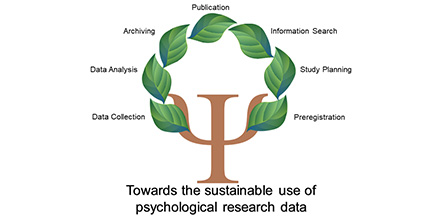The archiving and provision of research data is regarded as an important basis for the transparency and quality of scientific work. At the same time, the increasing free availability of data should stimulate new research projects and reduce additional work. But how can the existing potentials in the research data best be exploited? How must they be prepared so that they can be used not only for clarifying the original question, but also for other questions and, if necessary, even across disciplines?
The description of research data plays an essential role in making them comprehensible and thus re-usable. In this context, an adequate description not only improves the traceability of research data for interested researchers. Rather, it lays the foundation for re-usability of the data with the analysis tools common in the respective professional context (e.g. for meta-analyses).
At present, however, there are no established standards for the documentation of psychological research data. While some archives do not even provide descriptions of the data stored in them, others rely on standards they have created themselves and which are oriented towards documentation schemes in computer science and library sciences.
But what is the perspective of the psychological community? What do researchers need for the re-use of existing data collected by others? Which formats, which descriptions, which tools? The exploration of these issues is the aim of the PsyCuraDat project. At the end, there will be standards for data documentation which, due to their orientation towards the needs of the psychological research community, will enable an optimized exploitation of the data.



